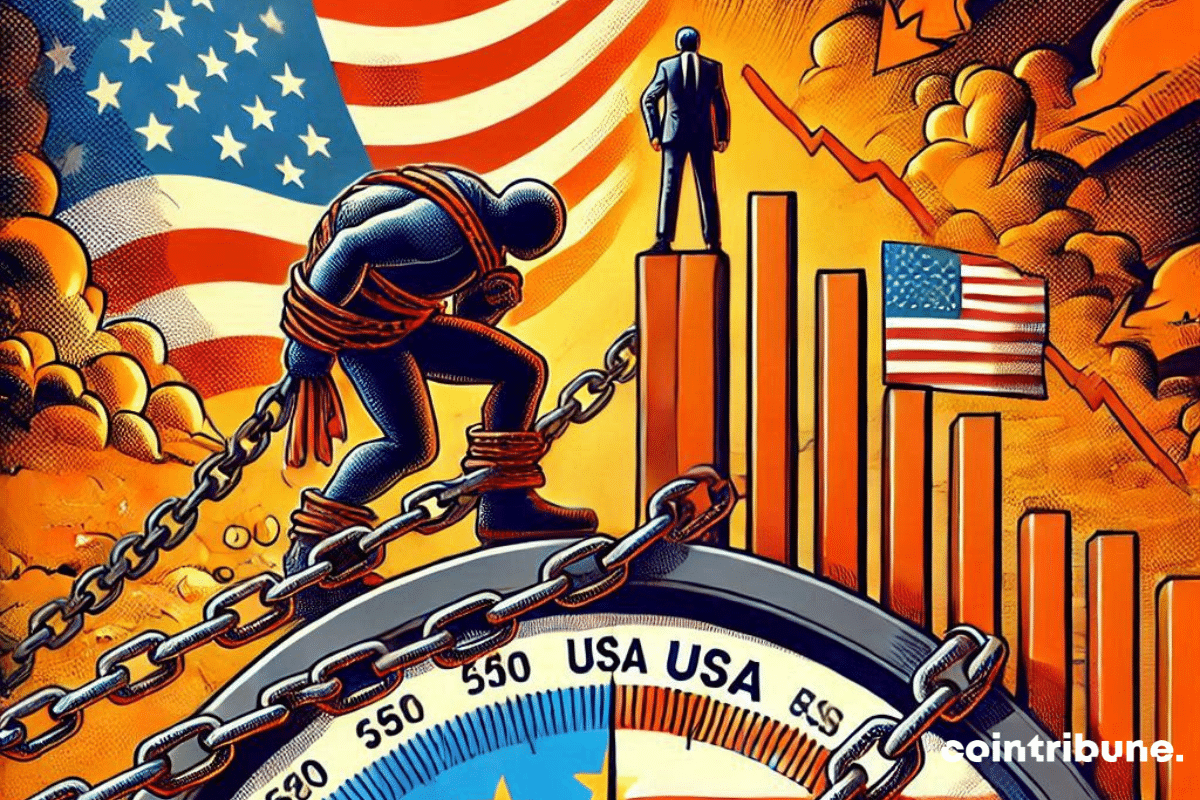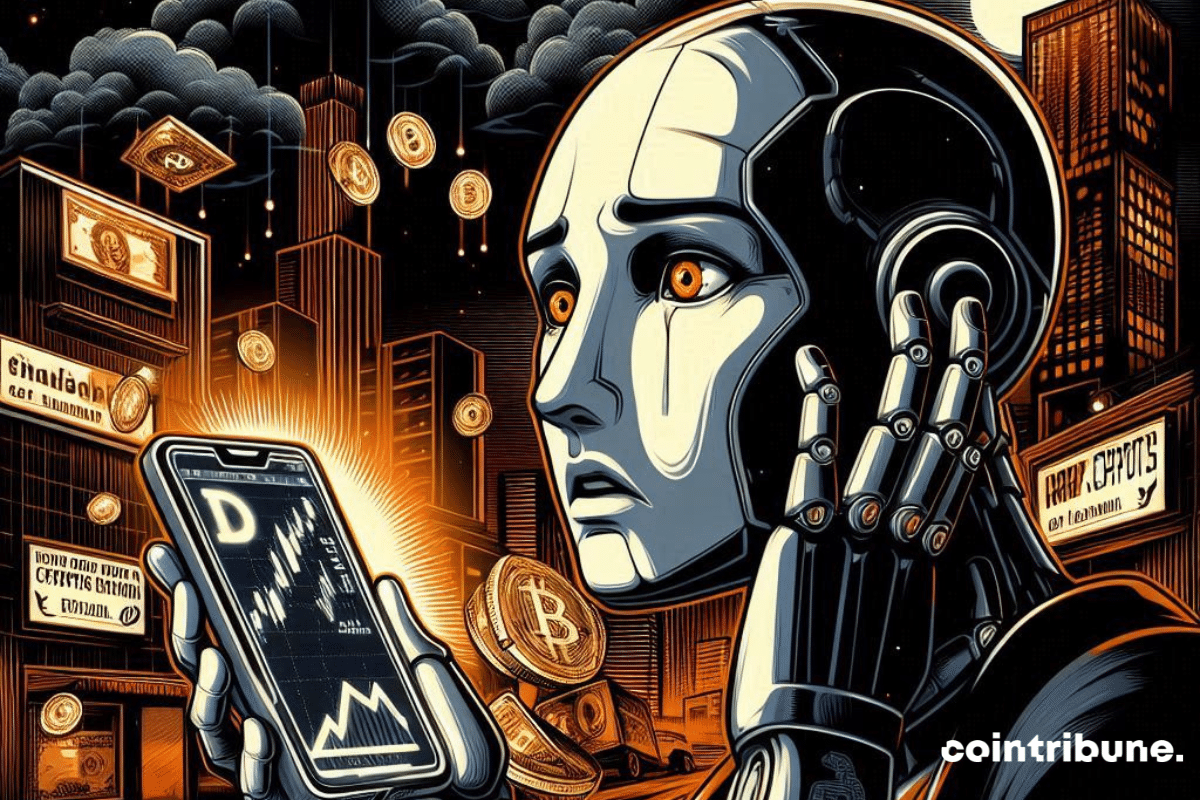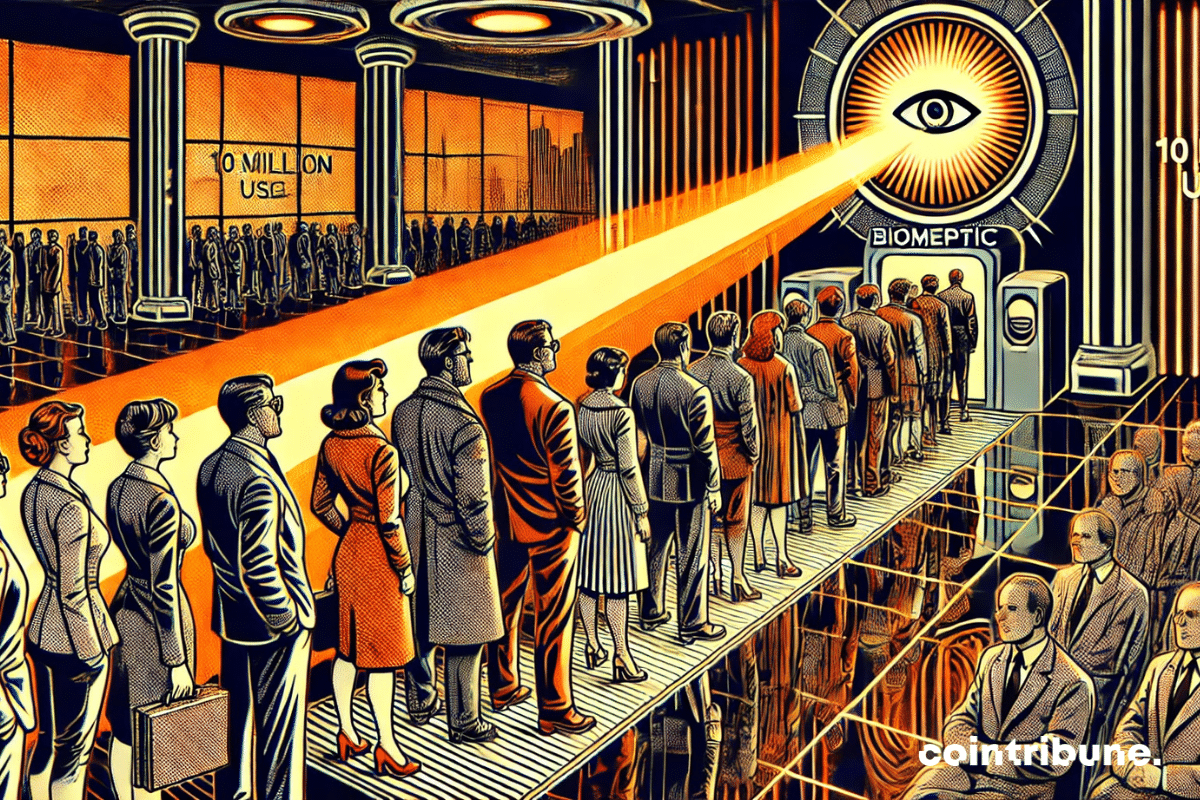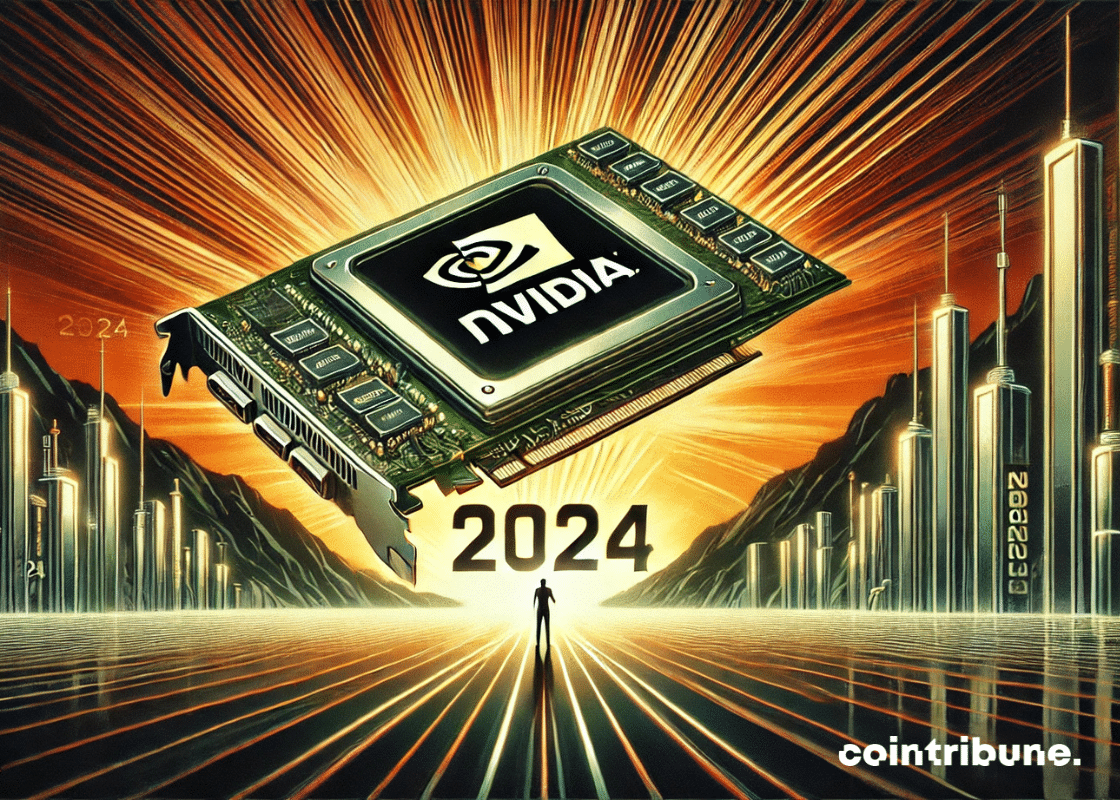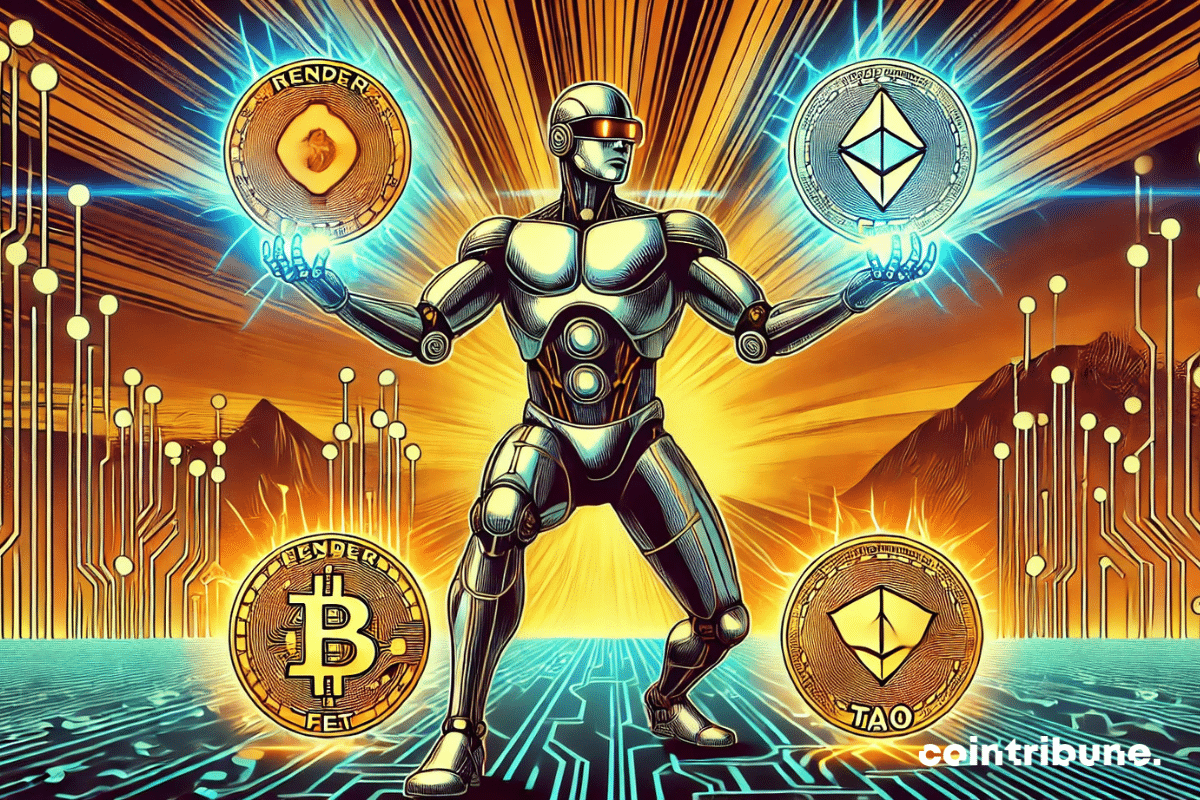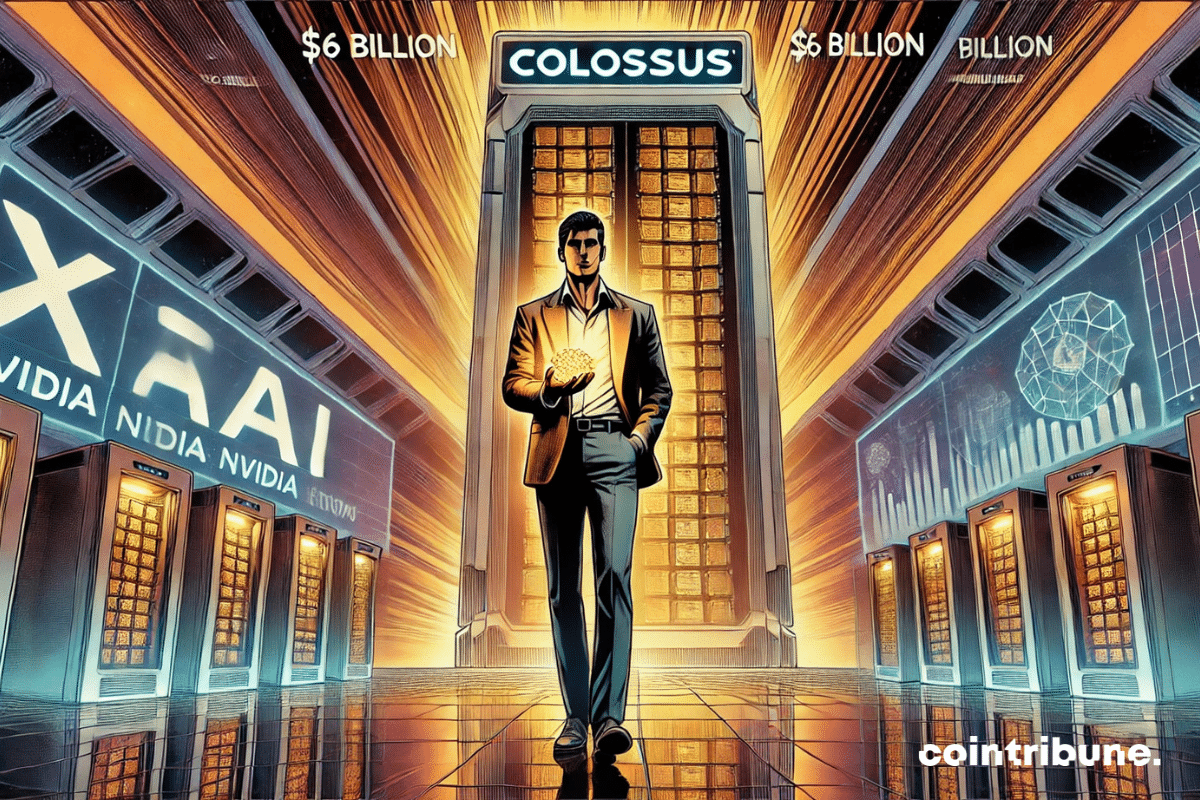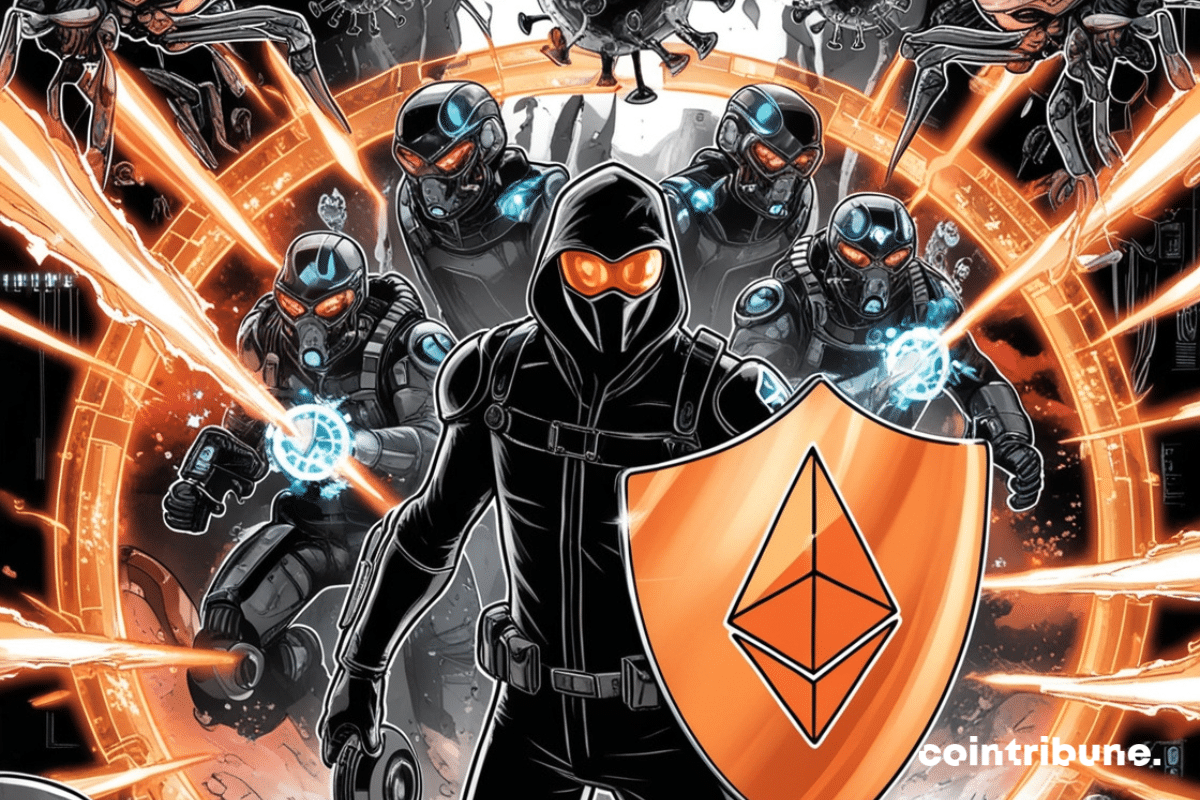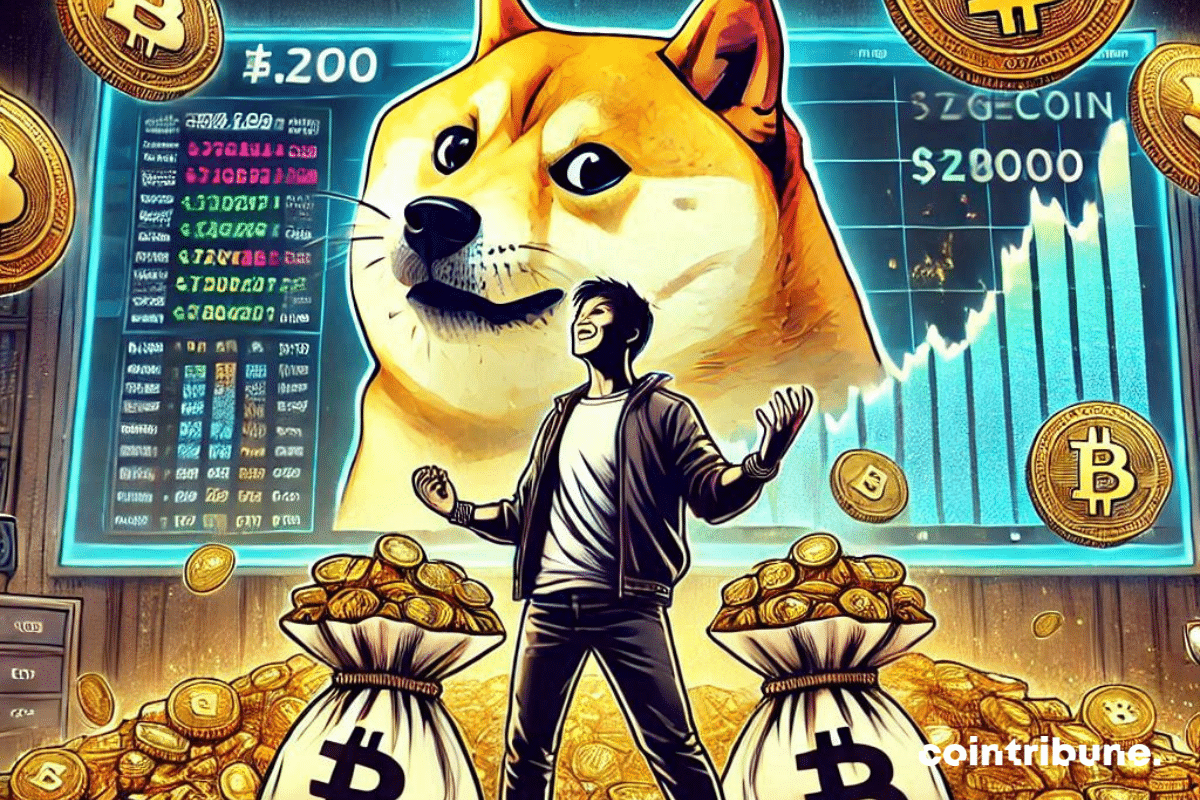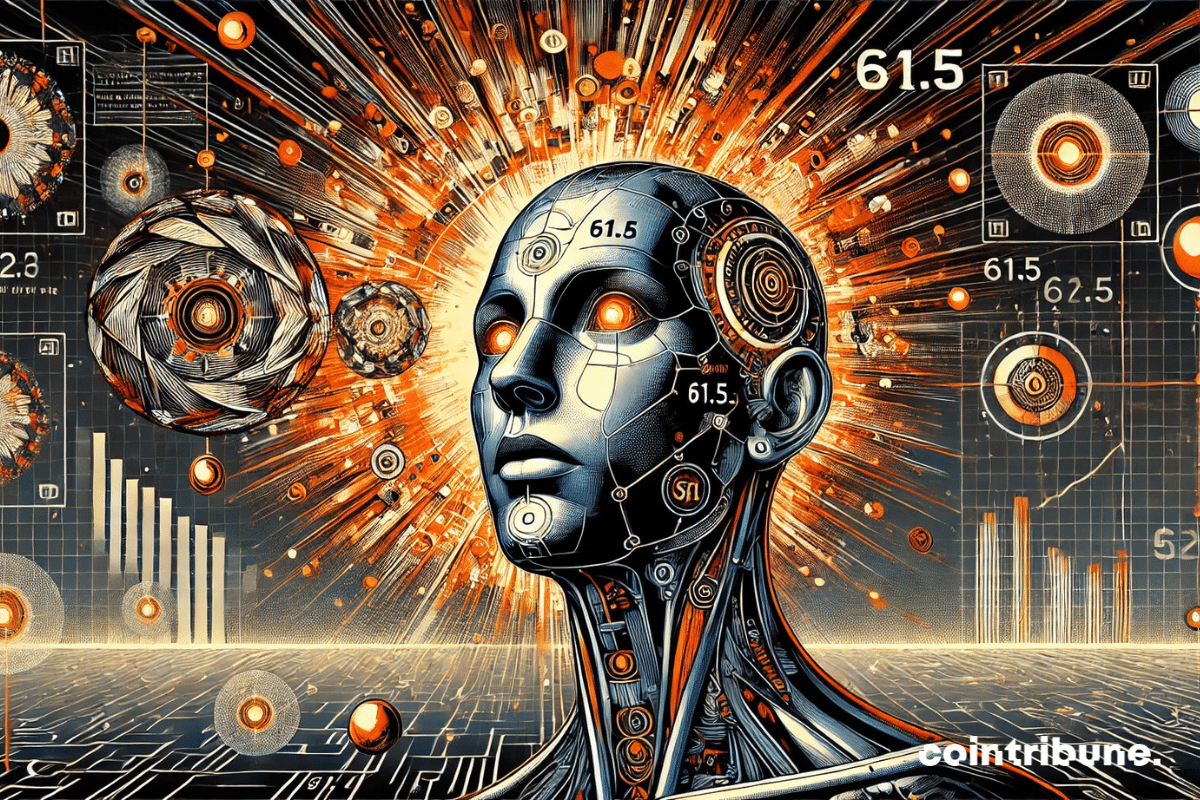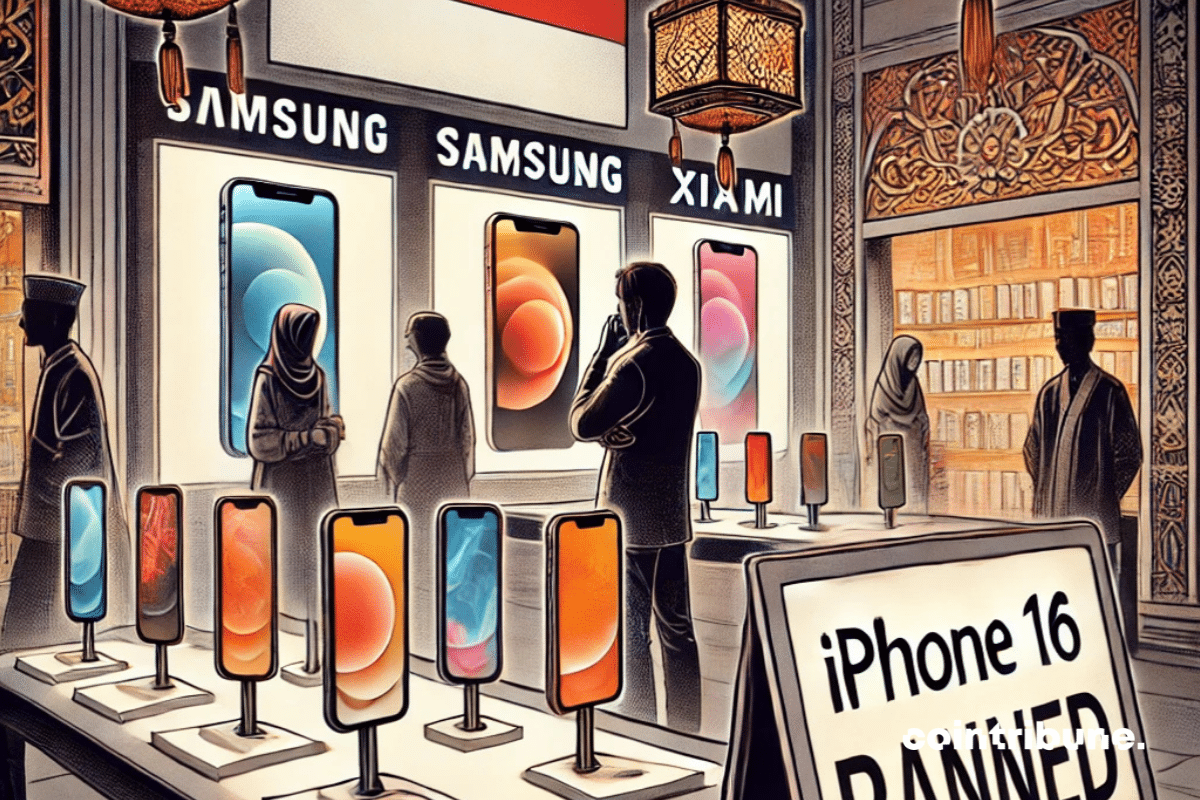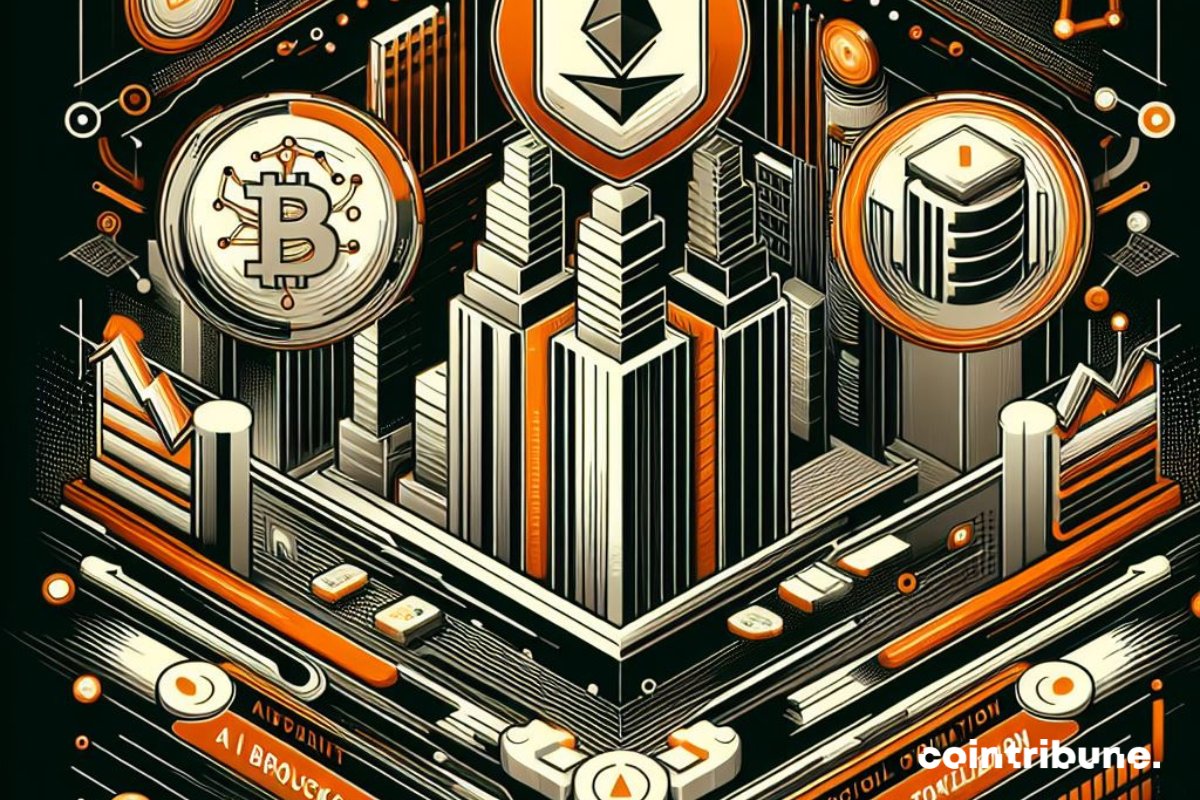Semiconductors have become an essential pillar of the global economy and technological security. In this context, China announced an unprecedented investment of 37 billion euros to accelerate its technological autonomy, which has so far been hindered by the dominance of Europe and the United States. This strategic sector, embodied by players such as ASML, the world leader in photolithography equipment, is now at the heart of fierce competition. Beijing is not only looking to bridge its gap but to redefine the balance of power with the aim of achieving complete independence. This initiative could reshape the contours of global innovation and intensify tensions in an already high-pressure market.
Intelligence Artificielle
The market for AI (Artificial Intelligence) related tokens is expanding rapidly and could reach a total market capitalization of $60 billion by 2025, according to Gracy Chen, CEO of the crypto exchange platform Bitget. This forecast highlights the growing importance of AI agents in the cryptocurrency ecosystem and their potential to transform various aspects of decentralized finance (DeFi).
While the American economy soars like a star, Europe gets lost in a maze of rules and bitter regrets.
On the crypto market, AI tokens are stumbling: billions evaporate, and artificial intelligence reveals a very human limit, that of rampant speculation.
Artificial intelligence is progressing at a rapid pace, making the distinction between humans and machines increasingly difficult. In response to this evolution, Worldcoin, now rebranded as World, aims to establish a universal proof of humanity through a biometric identification system based on iris recognition. The company has just announced that it has surpassed the milestone of 10 million verified users, a benchmark that signifies its massive adoption and fuels growing controversy. Indeed, the project relies on a network of orbs tasked with scanning the users' ocular data to assign them an unforgeable digital identity. According to its creators, this technology would secure digital interactions and ensure that only genuine humans access online services. Nevertheless, several governments and data protection authorities are concerned about the potential pitfalls of this model. Between technological promise and regulatory resistance, Worldcoin is part of a debate on digital identity and personal data governance. Its success or failure could shape the future of online authentication in a world where AI challenges the foundations of digital trust.
Artificial intelligence is reshaping the technological and economic power dynamics, propelling certain nations into becoming new nerve centers of innovation. Indeed, India, with its rapidly expanding market and substantial talent pool, is attracting tech giants in a race for sector dominance. Microsoft has recently made a decisive move by announcing a $3 billion investment to develop its cloud and AI capabilities in India. This ambitious initiative includes the construction of new data centers, the deployment of cloud infrastructure, and especially a large training program aimed at 10 million Indians by 2030. Far from being just an economic bet, this investment is part of a long-term strategy to anchor Microsoft at the heart of India's digital transformation. With the support of the government, the multinational aims to stimulate the AI startup ecosystem and accelerate the adoption of cutting-edge technologies on a large scale.
Vitalik Buterin, co-founder of Ethereum, recently suggested a "soft pause" in the use of computing resources at an industrial scale to slow down the development of potentially dangerous superintelligent artificial intelligence (AI). This proposal, along with other radical measures, aims to give humanity more time to prepare for the risks associated with such technology.
In 2025, venture capital in the crypto sector will continue to grow. According to experts, venture capital investors will focus on three burgeoning areas in the cryptocurrency industry, likely attracting nearly 18 billion dollars in investments.
Under the scorching sun of 2025, AI cryptos shine, but their reign is fragile. Memecoins, relics of the past, may be awaiting a return to the firmament.
The year 2024 will go down in history as a decisive milestone for Nvidia, an emblematic figure of technological innovation in the era of artificial intelligence. Thanks to visionary investments and strategic advances, the company has reached an unprecedented market capitalization of $3 trillion, consolidating its role as a global leader. This success largely relies on its chips, which equip leading global data centers, and on its CUDA ecosystem, favored by developers. However, this triumph comes with increasing challenges. The rise of ambitious competitors, such as AMD and Broadcom, intensifies the pressure. Moreover, key clients, including Google and Amazon, are actively exploring alternatives to reduce their reliance on Nvidia. These contrasting dynamics place the company at a strategic turning point, where the slightest misstep could redefine the balance of power in the market.
In a world where technology is evolving at a breakneck pace, artificial intelligence (AI) and blockchain are emerging as pillars of innovation. Their convergence paves the way for profound transformations in key sectors such as finance, logistics, and entertainment. These advancements are attracting growing interest from investors and developers, who are always on the lookout for disruptive solutions. Currently, several AI-based cryptocurrencies, notably TAO, FET, and Render, have dominated the rankings of the most active projects on social media. Such a trend, illuminated by data from LunarCrush, illustrates their growing popularity as well as the impact of these technologies on the blockchain ecosystem. These projects, thanks to their ability to generate massive interactions, reflect a positive dynamic that could redefine priorities within the crypto industry.
Cryptos based on artificial intelligence, long perceived as a revolution in the sector, are currently facing a major crisis. At the beginning of December, their market capitalization reached an impressive peak of $70.4 billion, reflecting investors' enthusiasm for this new technological niche. However, within a few weeks, this valuation has dropped by 28%, now standing at $50.5 billion. This decline is explained both by a general downturn in the crypto markets and by declining interest from investors, hindered by the lack of concrete use cases for AI tokens. Such a correction, while critical for some, fits into a cycle where altcoins could soon regain popularity. Experts remain optimistic about a potential rebound of these assets in 2025, thanks to a more favorable expected environment, particularly with altcoin season.
Elon Musk's artificial intelligence company, xAI, has just raised an additional $6 billion, bringing its valuation to nearly $50 billion. This strategic funding aims to strengthen its technological infrastructure and position against AI giants like OpenAI.
In 2024, the intersection of artificial intelligence (AI) and blockchain has become a major trend. AI-focused crypto projects are now concentrating on developing autonomous agents capable of performing tasks such as trading, investment management, and user interaction.
Crypto, AI, and hybrid worlds: Buterin, like a digital alchemist, presents us with a vision where blockchain and biotechnology intersect to ward off threats from another century.
Global economic uncertainties are forcing institutions to thoroughly rethink their investment strategies. In this context, decentralized finance (DeFi) is emerging as a credible and visionary alternative for reinventing traditional financial models. In recent years, major advancements have transformed DeFi into a sophisticated ecosystem, far beyond early technological experiments. Thus, the development of bitcoin staking, the tokenization of real assets, and the integration of autonomous artificial intelligences herald a new era for this rapidly expanding sector.
Under the spotlight of speculation, memecoins attract and terrify. Solana leads the dance, Coinbase follows, while traders oscillate between golden dreams and cold sweats.
The sector of crypto related to artificial intelligence is experiencing rapid growth in 2024. After a chaotic period marked by high volatility and geopolitical challenges such as U.S. restrictions on AI chip exports to China, the market has regained new momentum. This spectacular recovery has resulted in a 208% growth over the year, propelling the total market capitalization of the sector to $61.5 billion. Several dynamics are at play behind this remarkable rebound. On one hand, the increasing adoption of blockchain solutions powered by artificial intelligence has bolstered the credibility of these technologies. On the other hand, the heightened demand for utility tokens that can support expanding ecosystems in areas such as gaming, entertainment, and decentralized services has solidified this trend.
"Between technological shores and headwinds, Nvidia navigates. China strikes, not for a monopoly, but to challenge the hegemony of American chips. A fight where every chip counts."
Google recently unveiled Gemini 2.0, a major advancement in the field of artificial intelligence (AI) agents. This new version marks a significant milestone in the evolution of AI technologies, aimed at enhancing the interaction and efficiency of intelligent agents with humans.
According to Nvidia, agentic AI is "a computer that thinks for itself." The tech has struck again!
In a new demonstration of the significant impact of artificial intelligence on financial markets, NVIDIA has surpassed Apple to once again become the world's most valued company. This turnaround, while symbolic, illustrates the growing power of companies that rely on cutting-edge technologies such as AI and advanced graphics processors. While Apple is experiencing the effects of a lackluster quarter, NVIDIA continues to attract investors thanks to its strategic positioning and expansion into key sectors. But beyond the mere valuation figure, this dynamic sheds light on deeper trends within the global economy and technology.
At the occasion of the World Congress on Innovation and Technology 2024, in Armenia from October 5 to 7, Nvidia unveiled ambitious projects to democratize humanoid robots that incorporate advanced artificial intelligence. "Soon, these machines could live and work alongside us," said Rev Lebaredian, Nvidia's Vice President. This announcement echoes the rise of AI across all sectors of society. At the heart of this ambition, Nvidia envisions a revolution similar to that of smartphones, making all these robots that will imitate both human appearance and behavior accessible.
Indonesia, one of the most dynamic economies in Southeast Asia, has made a radical decision by banning the sale of the latest iPhone 16. While Apple was counting on this new model, boosted by artificial intelligence, to drive its global sales, this setback shows how local geopolitical and economic stakes can disrupt the strategies of tech giants. The measure, taken by the Indonesian government, marks a sudden halt in Apple's quest for expansion in this region, which is essential for its future growth.
What if an AI could completely control your computer? With Anthropic’s Claude 3.5, that reality is already here. This revolutionary innovation allows AI to handle complex tasks, move the cursor, and use software like a human. But how far can it go, and what risks does this pose to the…
Artificial intelligence (AI) is gradually reshaping the contours of modern medicine, but a breakthrough could forever change cancer diagnosis. Indeed, the CHIEF model, developed by Harvard Medical School, has just reached a historic milestone. Capable of detecting several types of cancers with 96% accuracy, it stands out as one of the most promising tools for improving early diagnosis and prognostic assessment. In the face of growing challenges in oncology, this model opens new perspectives for cancer research and treatment.
The rapid rise of digital technologies is disrupting traditional economic paradigms. Among these innovations, artificial intelligence (AI) and Bitcoin (BTC) are emerging as key players in this transformation. Anthony Pompliano, a renowned investor and founder of Pomp Investments, anticipates a decade marked by a synergy between these two technologies. According to him, AI will generate considerable wealth, while Bitcoin will play an important role in preserving this new fortune.
As the crypto market goes through a consolidation phase, savvy investors are already keeping a close eye on the horizon searching for the next trends that will propel Bitcoin to new heights. Here are three paths to explore to stay ahead.


